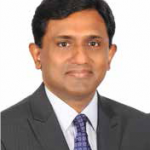
The Covid-19 pandemic presents unique challenges and opportunities for the global community and multilateral institutions. The newly elected president of the United Nations Security Council presented the programme of work for May 2021 without any mention of the pandemic and the need to channelise global action. The Covid-19 pandemic is the elephant in the room that reminds the global community of the urgent need for Security Council reforms. The reforms should not be just an expansion of the Council membership. The Veto system should go to make the UN an institution fit for the purpose.
Veto power or the power of the five permanent members of the Security Council – the United States, China, France, Russia, the United Kingdom — to veto any substantive resolution of the General Assembly has become the Achilles heel for the United Nations. Veto power and related global politicking are increasingly becoming hurdles for multilateralism, a weakness of the UN system despite overall strength. Veto power can lead to loss of legitimacy of the UN system itself.
READ I Covid-19 vaccines: Why compulsory licensing may fail to address shortage
China, the newly elected president of the Security Council, has chosen to convene three events in May. However, there was no mention of the Covid-19 pandemic, the most critical contemporary global threat to human security. When Ambassador Zhang Jun offered a press briefing on the May agenda of the Security Council, more than 3.2 million people have already died of the new coronavirus outbreak. Ambassador Zhang Juan was silent about the magnitude of the Covid-19 pandemic, though he acknowledged the death of 50 peacekeepers during this time.
Security Council retains political focus amid pandemic crisis
The Security Council programme of work for May reflects the global challenges of peace and human wellbeing. It also reflects on the narrow understanding of peace, based on the military doctrine of border security. Security Council’s lack of political will to address the global pandemic is glaringly evident in the proposed agenda for May. To understand the political agenda behind the security council agenda, one has to read between the lines. Call for an effective global engagement on Covid-19 stems from the revelation that the pandemic affects every nation, but not equally.
Ambassador was very keen to announce that US Secretary of State Antony Blinken’s participation in the UN Security Council meeting on strengthening global cooperation and the critical role of the United Nations in harnessing international action to tackle the world’s conflicts and crises. The meeting that will be chaired by China’s foreign minister appears to be an effort to thaw the Sino-US relations than any other agenda.
READ I Unemployment, uncertainty chipping away at India’s demographic dividend
May is a busy month for the UN Security Council. The May agenda of the Security Council is also a sad reminder that a public agenda on peace and security also cleverly camouflage critical peace issues. The biggest threat to global peace today is the destruction caused by the Covid-19 pandemic. However, the May Security Council agenda has cleverly skirted this issue.
Early in May, the president of the UN Security Council is expected to hold a high-level briefing on “Upholding multilateralism and the United Nations-centred international system”. Wang Yi, China’s State Councillor and Minister for Foreign Affairs, is expected to chair the meeting. Volkan Bozkir, President of the General Assembly, will brief.
Security Council agenda may erode UN legitimacy
By not addressing the CovId-19 pandemic, the leadership of the Security Council may be abusing the global mandate and legitimacy of the council. Instead of a binding Security Council resolution, a presidential statement may be adopted at the high-level open debate on “Addressing the root causes of conflict while promoting post-pandemic recovery in Africa”. The Chinese Foreign Minister will chair the open debate. The UN Secretary-General António Guterres, the administrator of the UN Development Programme (UNDP), Achim Steiner, and an African Union representative are the anticipated briefers.
It appears that the UN Security Council is the prisoner of the archaic ideas of the military doctrine of peace. Instead of any call for decisive and diplomatic action, the council may host an open debate on “Improving the Safety and Security of Peacekeepers”. Under-Secretary-General for Peace Operations Jean-Pierre Lacroix and Under-Secretary-General for Operational Support Atul Khare are expected to brief. A Council product, most likely a presidential statement, is the expected outcome of the meeting.
An open debate on protecting civilians (POC) in armed conflicts is another major event scheduled in May. It is expected to focus on the protection of medical workers. Secretary-General Guterres and ICRC President Peter Maurer are the anticipated briefers. According to Amnesty International, at least 17,000 health workers have died of Covid-19. Sadly, Security Council is hiding behind the narrow definition of peace and security. UN Secretary-General Guterres and ICRC President Peter Maurer must expand the scope of their briefing to include protection of health workers.
UNSC focus on security
According to the programme of work of the UN Security Council for May, the council is expected to adopt a resolution expanding the mandate of the UN Verification Mission in Colombia to include monitoring compliance with the sentences handed down by the Special Jurisdiction for Peace (SJP), the judicial component of the transitional justice system established by the 2016 peace agreement.
Security Council resolution 2261 (2016) established the first UN Mission in Colombia on January 25, 2016. The commission’s mandate was to monitor and verify the laying down of arms and, as part of a tripartite mechanism. This was a definitive mechanism to monitor the bilateral ceasefire and cessation of hostilities following the signing of a peace agreement between the government and the Revolutionary Armed Forces of Colombia — People’s Army (FARC-EP). The FARC-EP was a guerrilla group involved in the continuing Colombian conflict that began in 1964.
Today, Columbia is reeling under the impact of the Covid-19 pandemic. The Columbian state’s official data body, the National Administrative Department of Statistics (DANE), has found that the economy contracted by 6.8% in 2020 due to the pandemic, the biggest fall in the country’s modern history.
The Security Council will also renew the mandate of the UN Assistance Mission for Iraq (UNAMI). In addition, the special representative and head of UNAMI Jeanine Hennis-Plasschaert is scheduled to brief the Council. The sixth report of the Special Adviser and Head of the UN Investigative Team to Promote Accountability for Crimes Committed by Da’esh/ISIL (UNITAD) is also anticipated.
Reflecting the political interest of the chair of the Security Council, several meetings on West Asia are on the programme this month. There will be monthly meetings on the political, humanitarian and chemical weapons tracks in Syria. The ceasefire brokered by Turkey and Russia in March 2020 remains fragile, and there are concerns that the chaos wrought by the coronavirus pandemic may exasperate the crisis in Syria.
After Syria entered into several international agreements that called for eliminating Syria’s chemical weapon stockpiles, the weapons disengagement began in September 2013. However, the destruction of Syria’s chemical weapons saga remains an unfinished agenda, another example of how the veto system effectively thwarting the peace process in some settings.
The Security Council will also hold its semi-annual meeting on the implementation of resolution 1559 (2004), which called for the disarmament of all militias and the extension of government control over all Lebanese territory. Under‑Secretary‑General for Political and Peacebuilding Affairs Rosemary DiCarlo is the expected briefer.
The council will convene its monthly briefing, followed by consultations, on Yemen. Special Envoy for Yemen Martin Griffiths and Under-Secretary-General for Humanitarian Affairs Mark Lowcock will brief. General Abhijit Guha, who heads the UN Mission to support the Hodeidah Agreement (UNMHA), may brief during the consultations.
On 12 September 2019, the Secretary-General appointed Lieutenant General (retired) Abhijit Guha of India as the Chair of the Redeployment Coordination Committee (RCC) and Head of the United Nations Mission in support of the Hudaydah Agreement (UNMHA) according to Security Council resolutions 2452 (2019)
The council will receive a briefing from the Special Coordinator for the Middle East Peace Process Tor Wennesland during its monthly meeting on the Middle East (including the Palestinian Question). A civil society representative may also brief.
Several Council meetings on African issues will take place in May. The Security Council is expected to adopt a resolution renewing the UN Interim Security Force mandate for Abyei (UNISFA) and extending the mission’s support for the Joint Border Verification and Monitoring Mechanism (JBVMM).
It will also vote on a draft resolution renewing South Sudan sanctions regime—including targeted sanctions and the arms embargo—and the mandate of the South Sudan Sanctions Committee Panel of Experts.
On Libya, the council will be briefed on the UN Support Mission for Libya (UNSMIL) and the sanctions regime by the Special Envoy to Libya and head of UNSMIL, Ján Kubiš, and the chair of the 1970 Libya Sanctions Committee, Ambassador T.S. Tirumurti (India). Additionally, ICC Prosecutor Fatou Bensouda will deliver her semi-annual briefing on recent developments concerning cases in Libya.
According to UNGCR Sahel region is facing one of the fastest-growing displacement crises in the world. More than 2.7 million people have been forced to flee their homes, and at least 13.4 million are in dire need of humanitarian assistance. According to the global child welfare agency Save the Children, in the central Sahel region – Burkina Faso, Mali, and Niger – many children have suffered the consequences of the COVID-19 pandemic, a disease whose impact in Africa is still a worrying mystery.
As part of the Maya agenda of the Security Council, there will be a meeting on the UN Integrated Transition Assistance Mission in Sudan (UNITAMS). Special Representative for Sudan and head of UNITAMS Volker Perthes is the expected briefer. The council will meet to receive a briefing on the Secretary-General’s report on the UN Assistance Mission in Somalia (UNSOM) from James Swan, Special Representative for Somalia and head of UNSOM. Francisco Madeira, head of AMISOM, may also brief.
The council’s semi-annual debate on Bosnia and Herzegovina will also take place in May. High Representative Valentin Inzko is expected to brief on the Office of the High Representative (OHR) report. The council will also hold a meeting to hear a briefing from the chair of the 1718 Democratic People’s Republic of Korea (DPRK) Sanctions Committee, Ambassador Mona Juul (Norway).
The Security Council is expected to continue to follow developments in Myanmar and Ethiopia (Tigray) closely. Meetings on these and other issues could be scheduled during the month. However, a decisive security council action on Myanmar military regime is unlikely as they enjoy the strong patronage from the Veto powers of the council.
The May agenda of the UN Security Council is a case study of the urgent need for Security Council reform. The council could have minimum called for a briefing by the WHO on an overview of global efforts and its gaps in responding to the pandemic. The ‘Elephant in the security Room’ lack of a comprehensive global initiative – reminds the global community about the urgent need for Security Council reform. The reform should not be just an expansion of the Council membership any more- the Veto system should go to become the UN, an institution fit for the purpose.
(Dr Joe Thomas is associate dean, faculty of sustainability studies, and head, School of Public Health, MIT World Peace University, Pune.)
Dr Joe Thomas is Global Public Health Chair at Sustainable Policy Solutions Foundation, a policy think tank based in New Delhi. He is also Professor of Public Health at Institute of Health and Management, Victoria, Australia. Opinions expressed in this article are personal.


